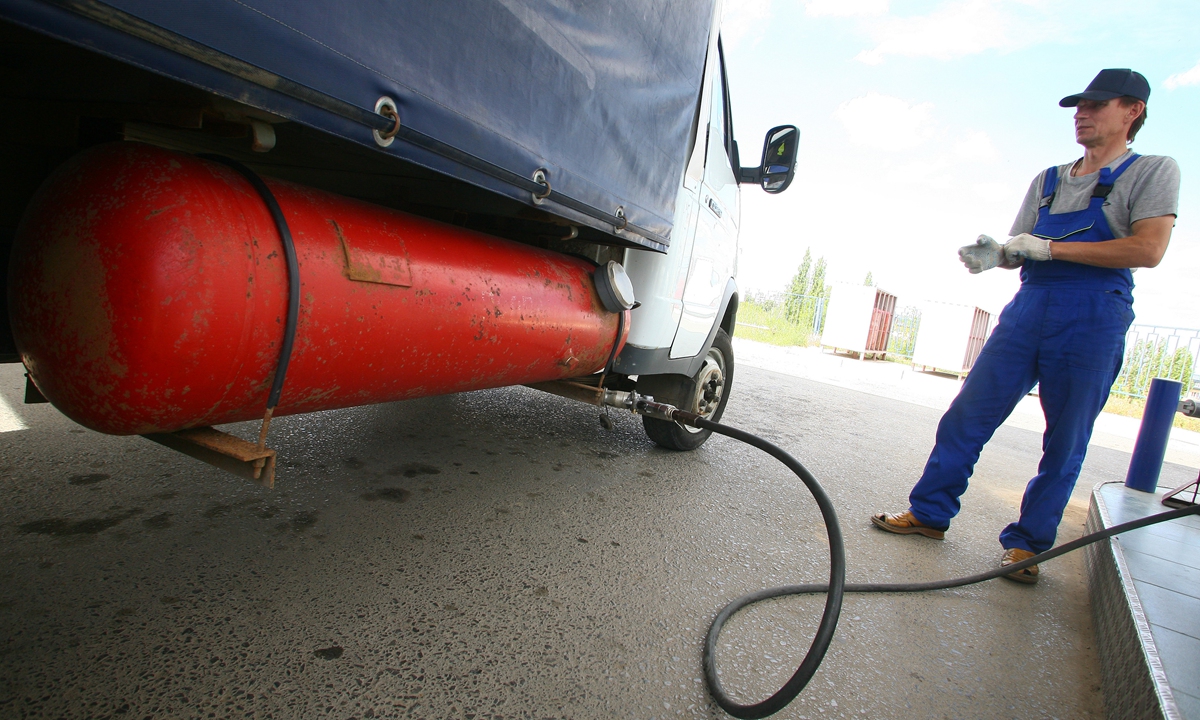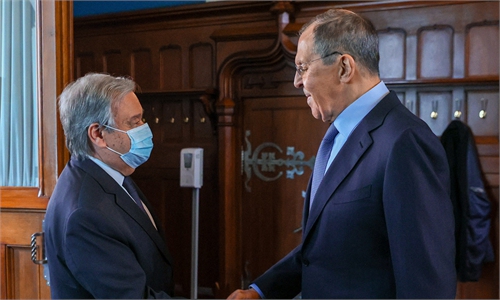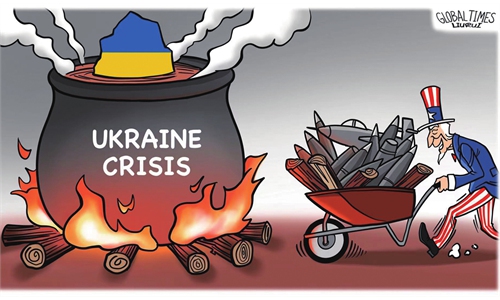Russia cuts gas to Poland and Bulgaria, 'a deterrent' amid West's stepped-up aid to Ukraine
Seen as 'deterrent' amid West's stepped-up aid to Ukraine

A van is being filled with fuel at a liquefied natural gas (LNG) station in Volgograd, Russia.Photo: VCG
Russia on Wednesday cut off gas to Poland and Bulgaria, the first since Moscow demanded ruble payments to buyers, which observers saw as "a substantial deterrent" when the West steps up support for Ukraine.Russian state-owned energy giant Gazprom had informed Poland, which has been a transfer country for Western aid to Ukraine, and Bulgaria, which is 70 percent dependent on Russian gas, of the suspension.
Kremlin required "unfriendly countries" to pay Gazprom in rubles starting April 1which most of Europe has been opposing.
Hungary, which is 100 percent dependent on Russian oil and gas, had agreed to pay in rubles. The UK issued a temporary license allowing payments to sanctioned Russian lender Gazprombank and its subsidiaries until the end of May for natural gas used in the EU, according to Bloomberg.
"It stands a high chance that Russia will suspend its gas supply to more European countries as the energy rift intensifies amid the escalating Russia-Ukraine conflict," Lin Boqiang, director of the China Center for Energy Economics Research at Xiamen University, told the Global Times on Wednesday.
Bulgarian Energy Minister Alexander Nikolov said, "We have provided alternative quantities for a sufficiently foreseeable period." He said that for the next month there are quantities of gas for critical facilities such as hospitals and the country has held initial talks on importing liquefied natural gas (LNG) through neighboring Turkey and Greece, according to Sofia News Agency, Bulgaria's largest English-language news provider.
European Commission President Ursula von der Leyen said the EU is "prepared" for a Russian gas stoppage and plans a "coordinated" response.
European gas prices jumped 24 percent amid the cuts and oil prices also spiked.
Lin said the energy cut has aroused market concerns about the trend of gas prices, which were expected to come down this year before the conflict, but now looks unlikely.
Energy prices will remain at a high level in the coming years as Europe scrambles for possible yet expensive alternatives, while Russia looks to other buyers including India, the expert said.
The EU imported more than 40 percent of its total gas consumption from Russia in 2021. Energy represented 62 percent of EU imports from Russia, and cost €99 billion ($105 billion), according to the EU Commission.
Cui Heng, an assistant research fellow at the Center for Russian Studies of East China Normal University, said Europe may manage to find alternatives like US LNG and Middle East oil to overcome the shortage for a while, but the problem is whether it can afford the huge extra costs when many European countries are facing severe inflation.
Europe has been expanding LNG imports by sea from the US, making Washington the biggest winner in the Europe-Russia energy rift.
It would cost $200 million for each carrier to transport LNG by sea and Europe will need dozens, even hundreds, to meet the gap left by the absence of Russian gas, along with the establishment of more LNG stations, Song Zhongping, a Chinese military expert and TV commentator, told the Global Times on Wednesday.
Lin also noted the European goal to diversify energy sources requires a large amount of infrastructure, such as the building of new pipelines, and the process could take years.
The halted Yamal pipeline to Poland is also the line supplying gas to Germany, 40 percent of whose gas is from Russia.
Before the energy rift, Germany agreed to deliver heavy weapons — Gepard anti-aircraft systems — to Ukraine on Tuesday at a meeting of defense ministers from 40 countries, convened by the US, to discuss further arming Ukraine and providing long-term support.
It is the first heavy weapons Germany decided to deliver to Ukraine and Western media reported the commitment as a major shift from the country's cautious attitude toward military aid to Kiev.
The German coalition government had included the restrictive arms export policy into its coalition agreement but later overhauled such rules in the face of mounting pressure domestically and from allies.
Criticism has been coming from Ukrainian officials, opposition politicians, and even people inside the coalition government over Chancellor Olaf Scholz's hesitation to supply heavy weapons to Ukraine.
The pledge of Gepard tanks is a compromise made to heal Germany's internal conflicts that could threaten the stability of domestic governance and to satisfy Western allies who have been pushing Germany to make a more substantial military commitment, experts said.
Song said the golden age of the Gepard tank was in the 1960s and 70s. The tanks are equipped with anti-aircraft cannons.
The tanks were phased out from active duty in Germany in 2010 and "require Germany-invested renovation before they can arm Ukraine troops," Song said.
Even if the renovation is finished, whether the tanks can be transported to battlefields in eastern Ukraine's Donbas remains in question considering Russia has been attacking the logistics routes.
Song said delivering tanks in stock rather than those in active duty is a compromise among German ruling parties and to satisfy countries like the US and the UK.



